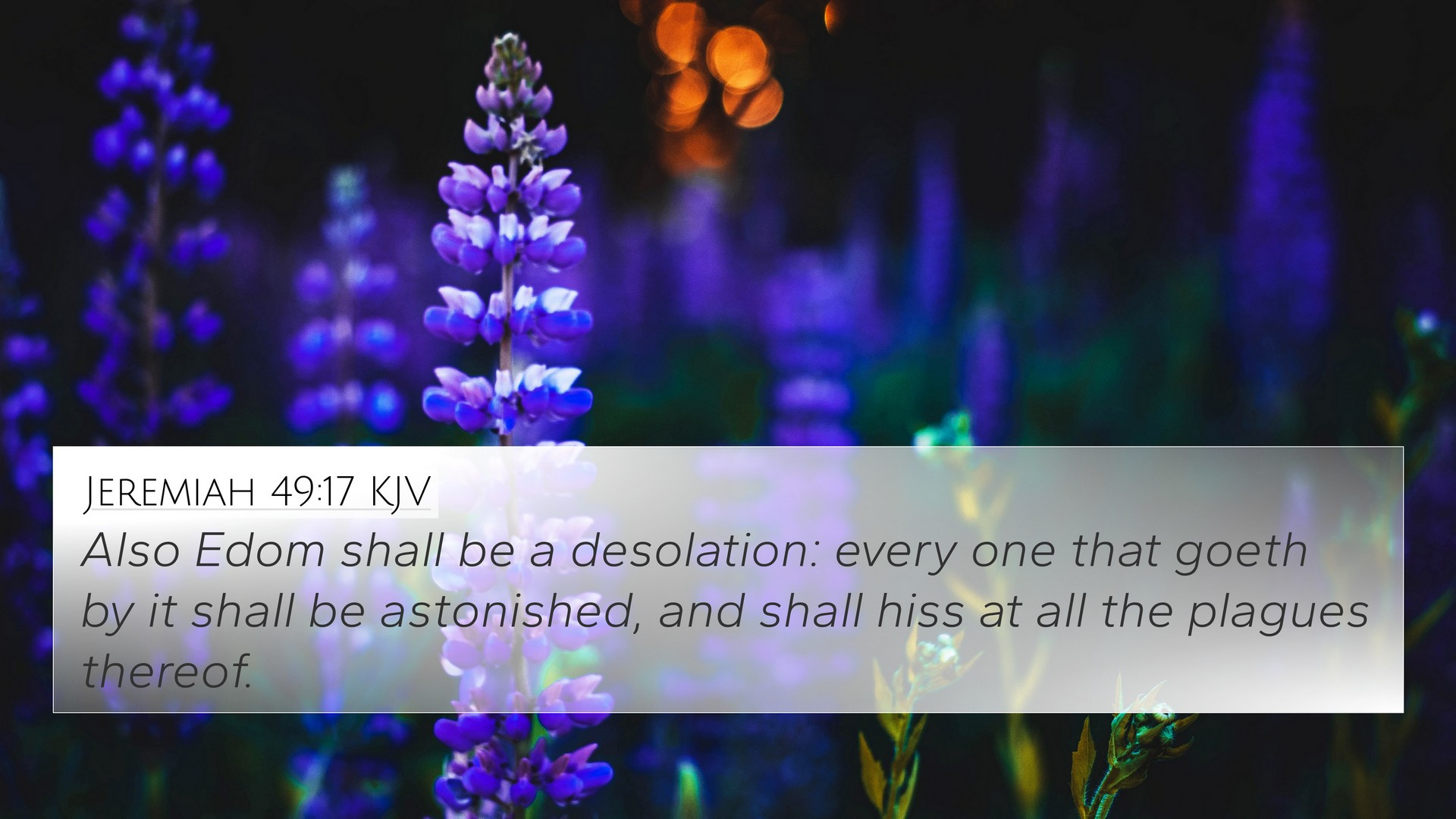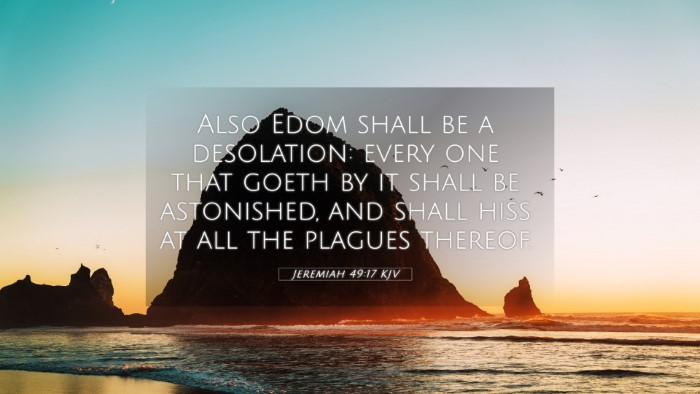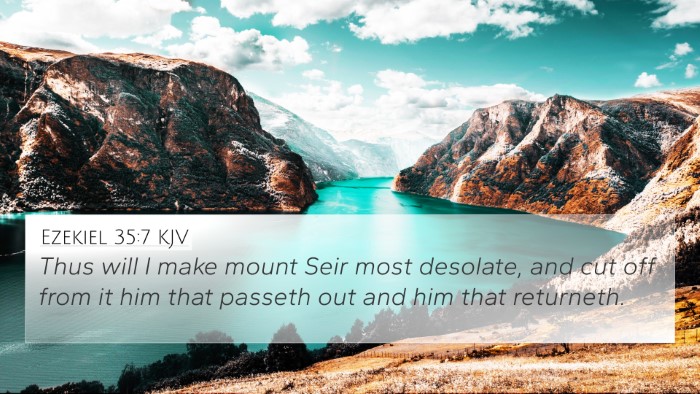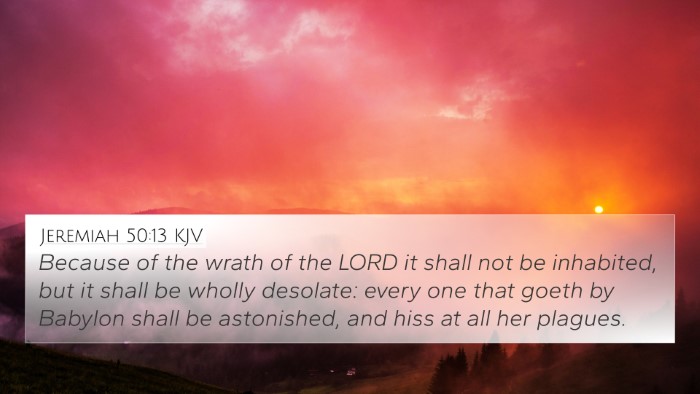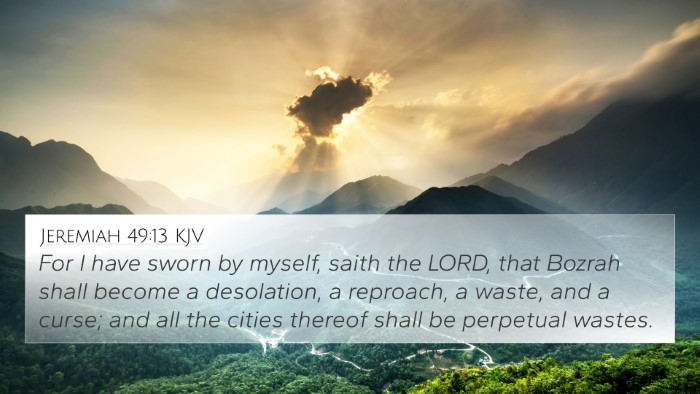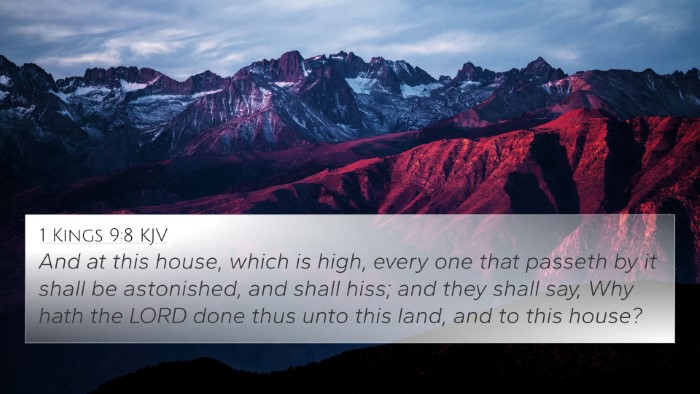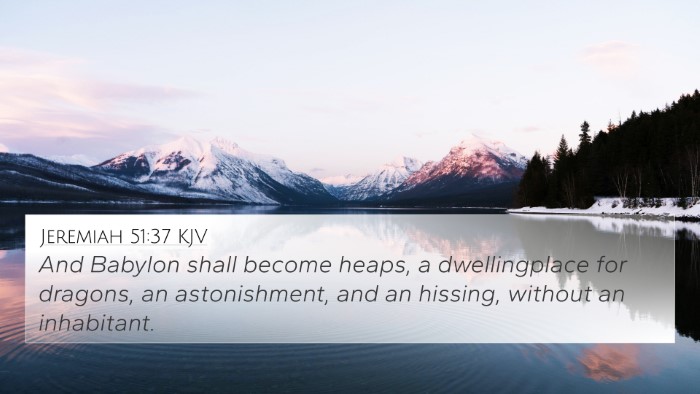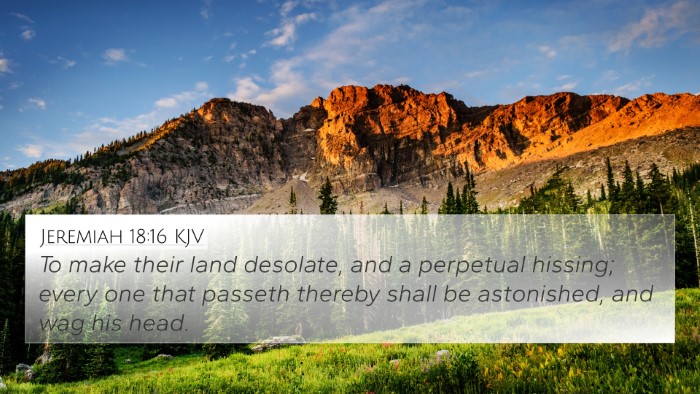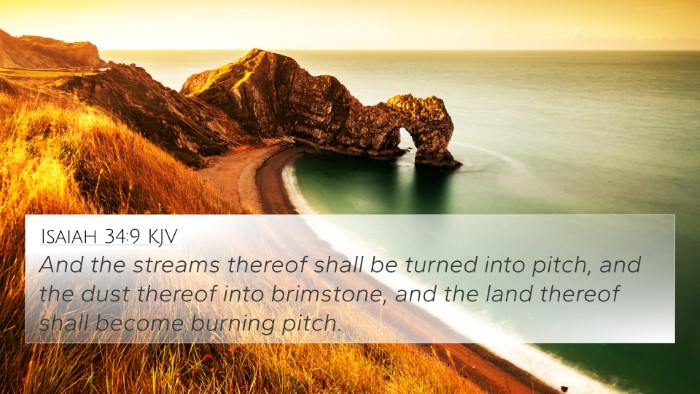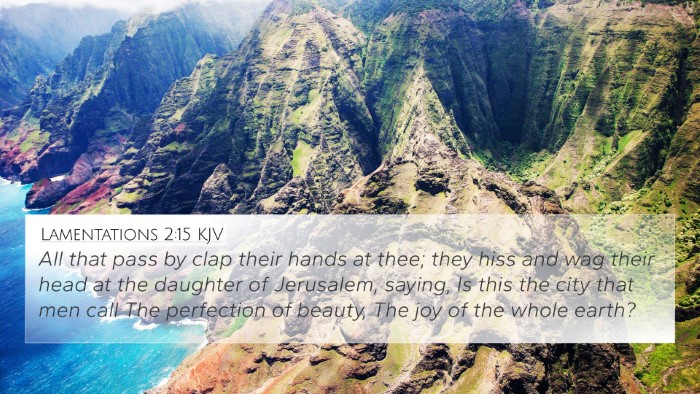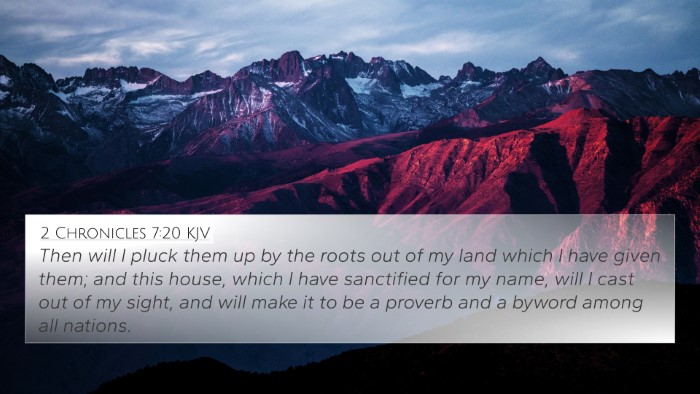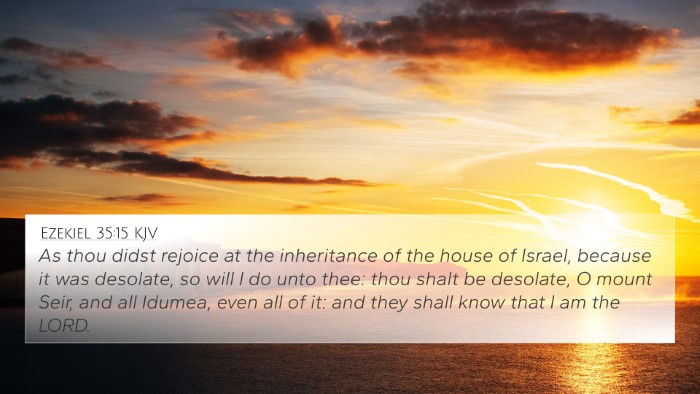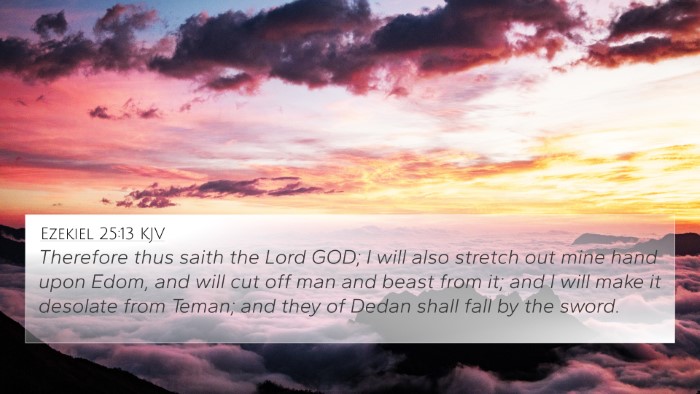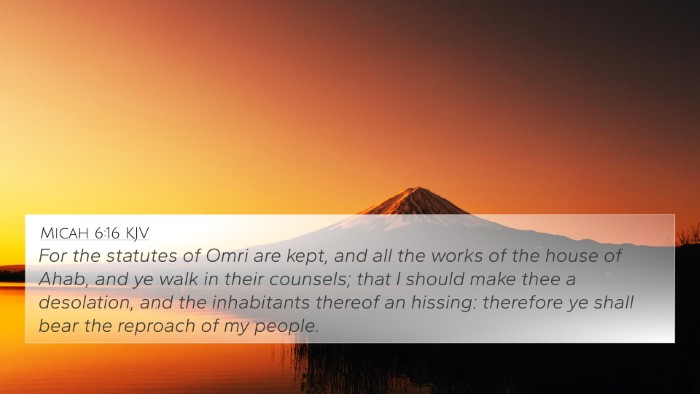Understanding Jeremiah 49:17
Verse Reference: Jeremiah 49:17
This verse declares the destruction and desolation of Edom, emphasizing its fate as a symbol of God’s judgment against nations that oppose Him. Edom, historically a descendant of Esau, represents arrogance and hostility towards God's people.
Contextual Background
The prophecy concerning Edom reflects the broader themes of judgment and restoration throughout the book of Jeremiah. Edom’s long-standing hostility towards Israel makes it a fitting subject for divine judgment.
Commentary Insights
-
Matthew Henry:
Matthew Henry highlights the inevitable desolation of Edom, which serves as a warning to those who take pride in their strength and security apart from God. The verse illustrates God’s sovereignty in establishing justice against nations that oppose His will.
-
Albert Barnes:
Barnes emphasizes that Edom would become a wasteland, a reality that symbolizes God’s power over all earthly kingdoms. The verse is an indictment of Edom's arrogance, noting that their downfall is a direct consequence of their rebellion against God.
-
Adam Clarke:
Clarke discusses the historical significance of Edom’s downfall, reflecting the prophetic nature of Jeremiah. He suggests that this passage serves as an inter-Biblical reminder of the consequences of leading lives that oppose God, drawing parallels with other Biblical narratives of judgment.
Bible Verse Cross-References
To better understand Jeremiah 49:17, we can explore several related Bible verses that provide depth to its themes of judgment and desolation:
- Obadiah 1:8-10: Discusses the fall of Edom and the reasons behind their destruction.
- Ezekiel 25:12-14: Details God's judgment against Edom for its actions against Israel.
- Isaiah 34:5-8: A prophetic account of the desolation that awaits Edom.
- Hebrews 12:16: Warns against the ways of Esau, connecting to Edom's heritage.
- Romans 9:13: Reflects God's choice and rejection related to Jacob and Esau.
- Malachi 1:3: Addresses God's love for Jacob and His hatred for Esau, the progenitor of Edom.
- Jeremiah 2:3: Reflects on Israel's relationship with God compared to Edom’s pride and downfall.
- Psalm 137:7: Remembers the Edomites' role in the destruction of Jerusalem.
- Matthew 24:15: Jesus' warning about the abomination of desolation connects back to ancient judgments.
- Revelation 19:20: Conveys the ultimate judgment of all nations that oppose God, akin to Edom’s fate.
Thematic Connections
The themes of pride, judgment, and the sovereignty of God are consistently woven throughout the scriptures. Through the lens of Jeremiah 49:17, one can engage in:
- Bible verse parallels: Comparing the narratives of Israel's enemies and their fates in light of divine judgment.
- Cross-referencing Biblical texts: Exploring both Old Testament and New Testament verses that align with the principles framed in this verse.
- Inter-Biblical dialogue: Understanding the broader narrative of scripture that depicts God’s judgment not just as punitive but as a means of reclaiming nations back to Him.
Tools for Bible Cross-Referencing
For deeper studies and connections between Bible verses, consider the following resources:
- Bible concordance: Essential for locating specific terms and their occurrences throughout the scriptures.
- Bible cross-reference guide: Helps in identifying verses that support or contrast with others.
- Comprehensive Bible cross-reference materials: Offer extensive insights on verse relationships.
- Cross-reference Bible study methods: Facilitate thematic studies across the scriptures.
Conclusion
Jeremiah 49:17 captures a significant moment of prophetic declaration against Edom. The combined insights of various public domain commentaries reveal its deeper meanings and implications, encouraging readers to reflect on the overarching themes of divine justice and the importance of aligning with God’s will.
By utilizing available tools and methods for cross-referencing Bible texts, one can uncover profound connections that enrich spiritual understanding and fortify one's faith.
